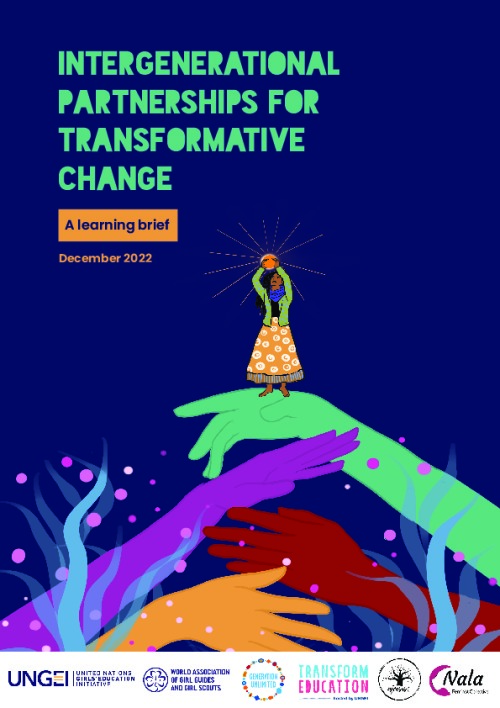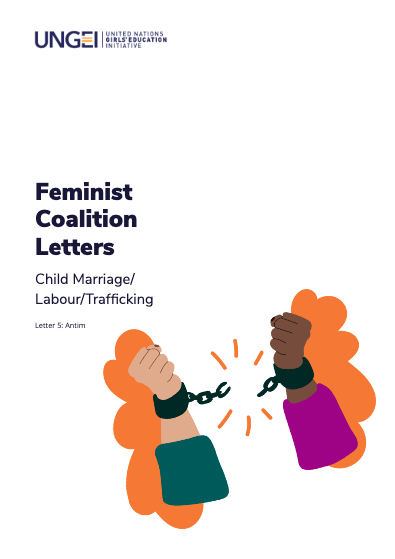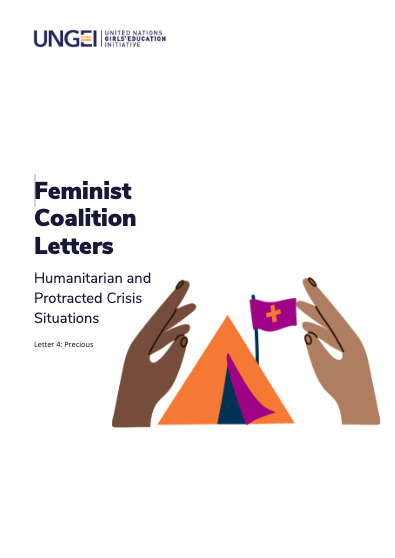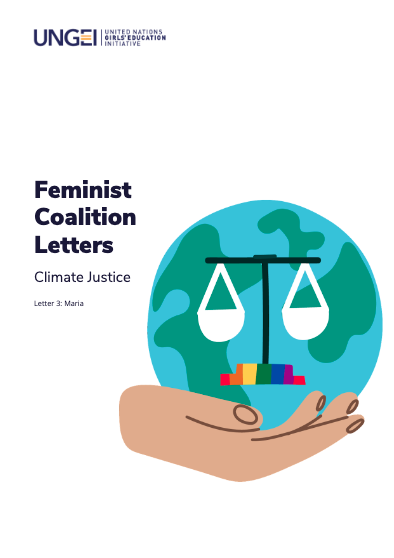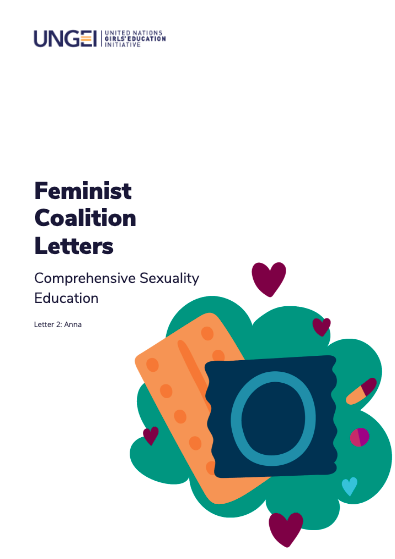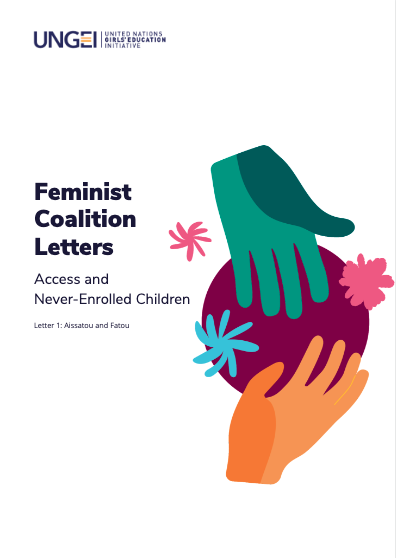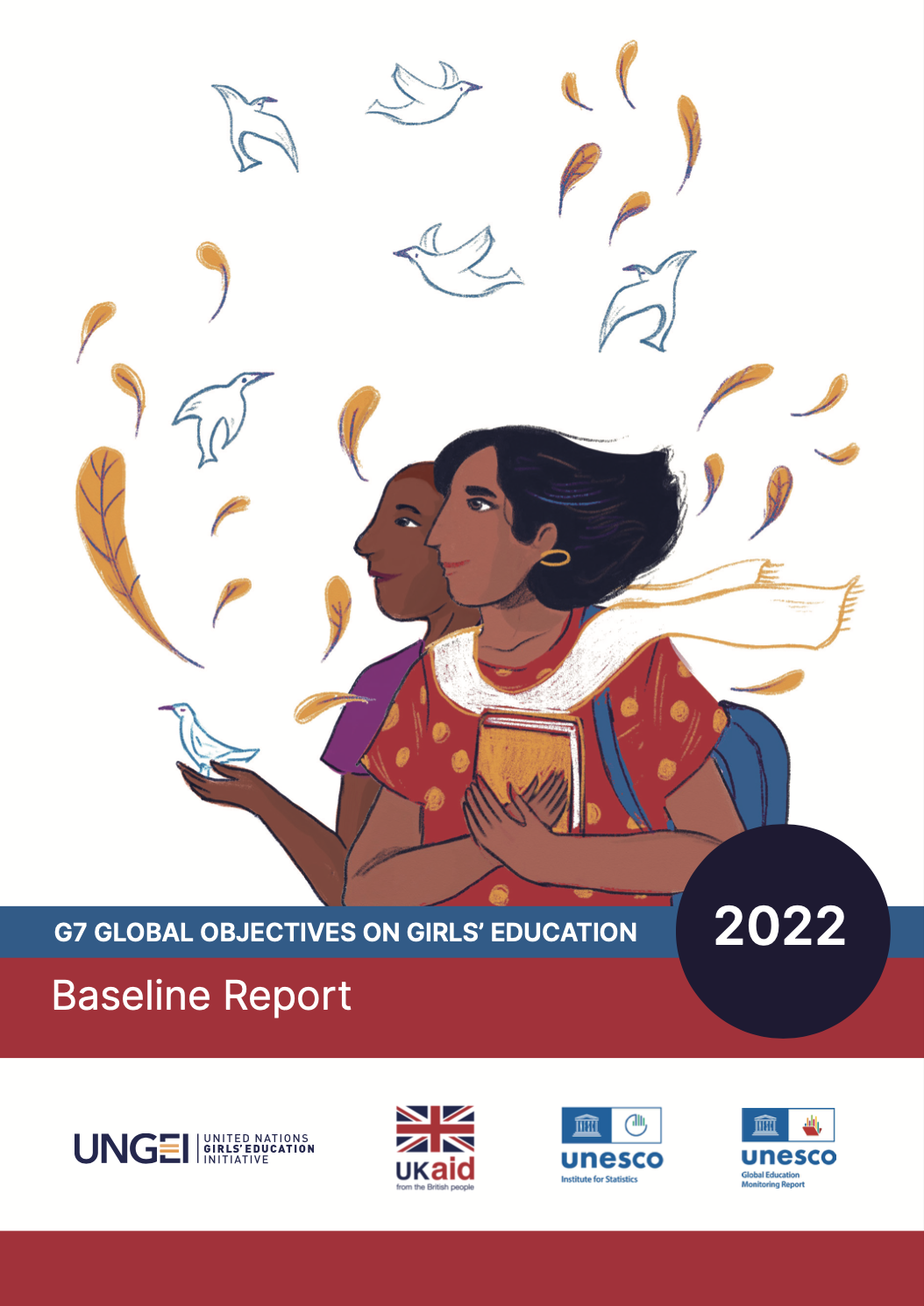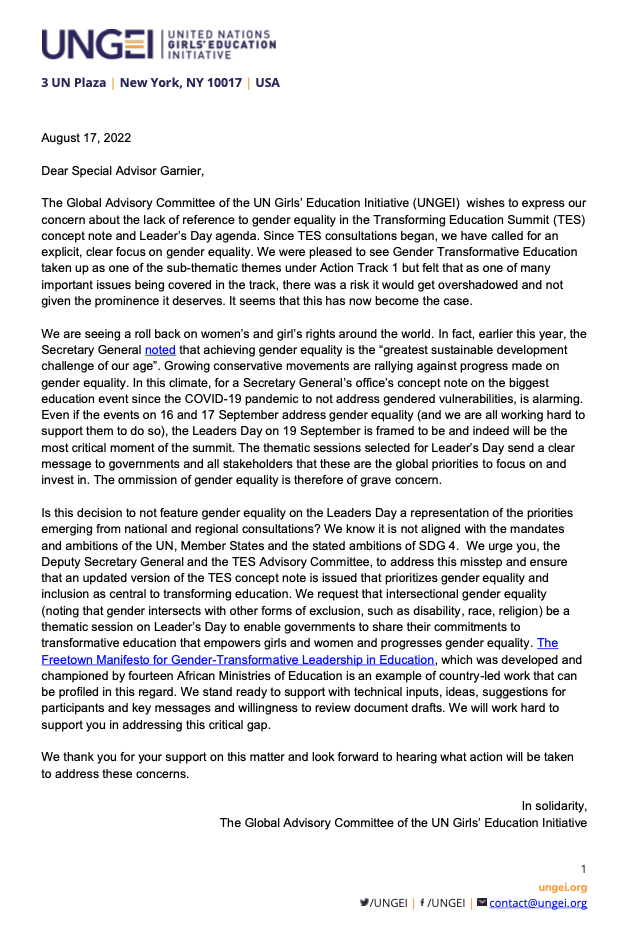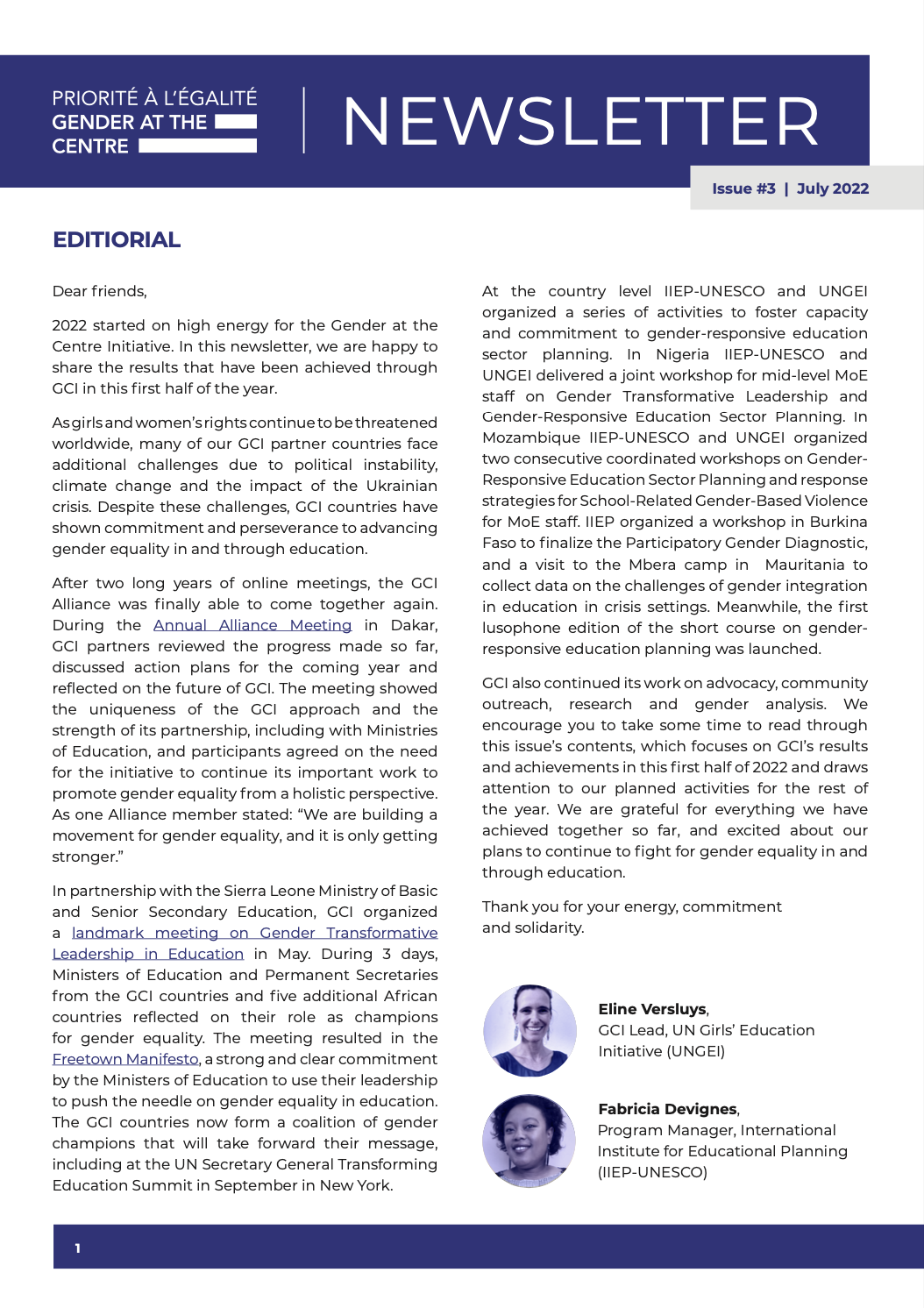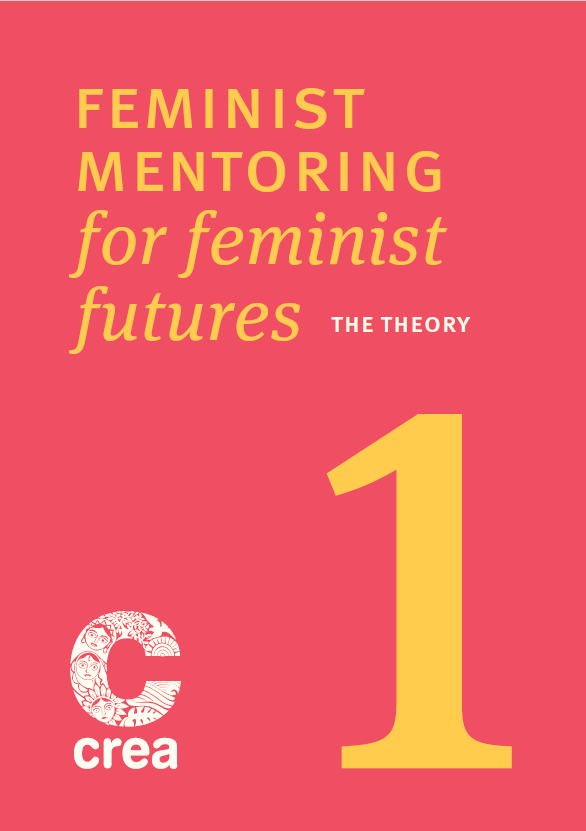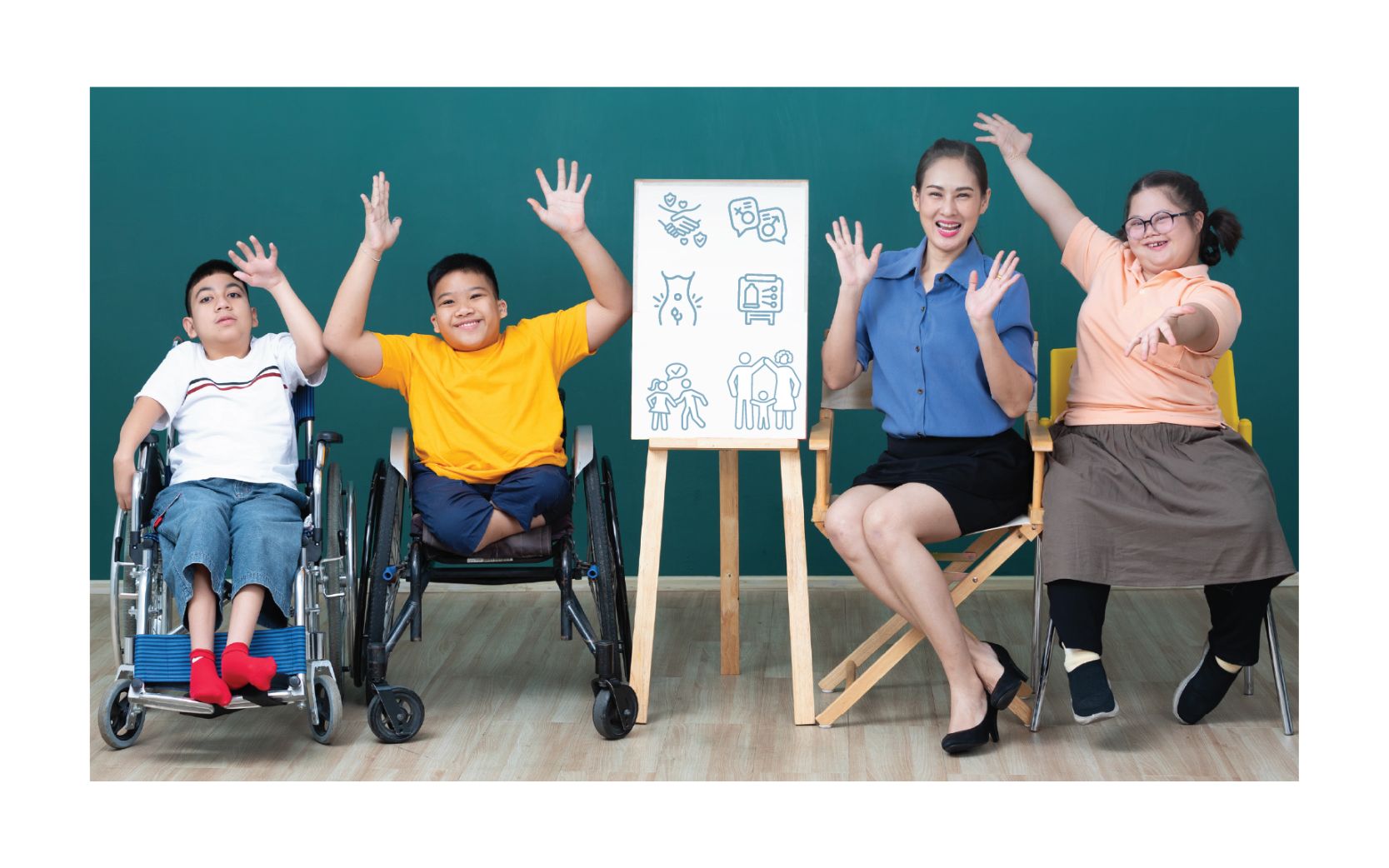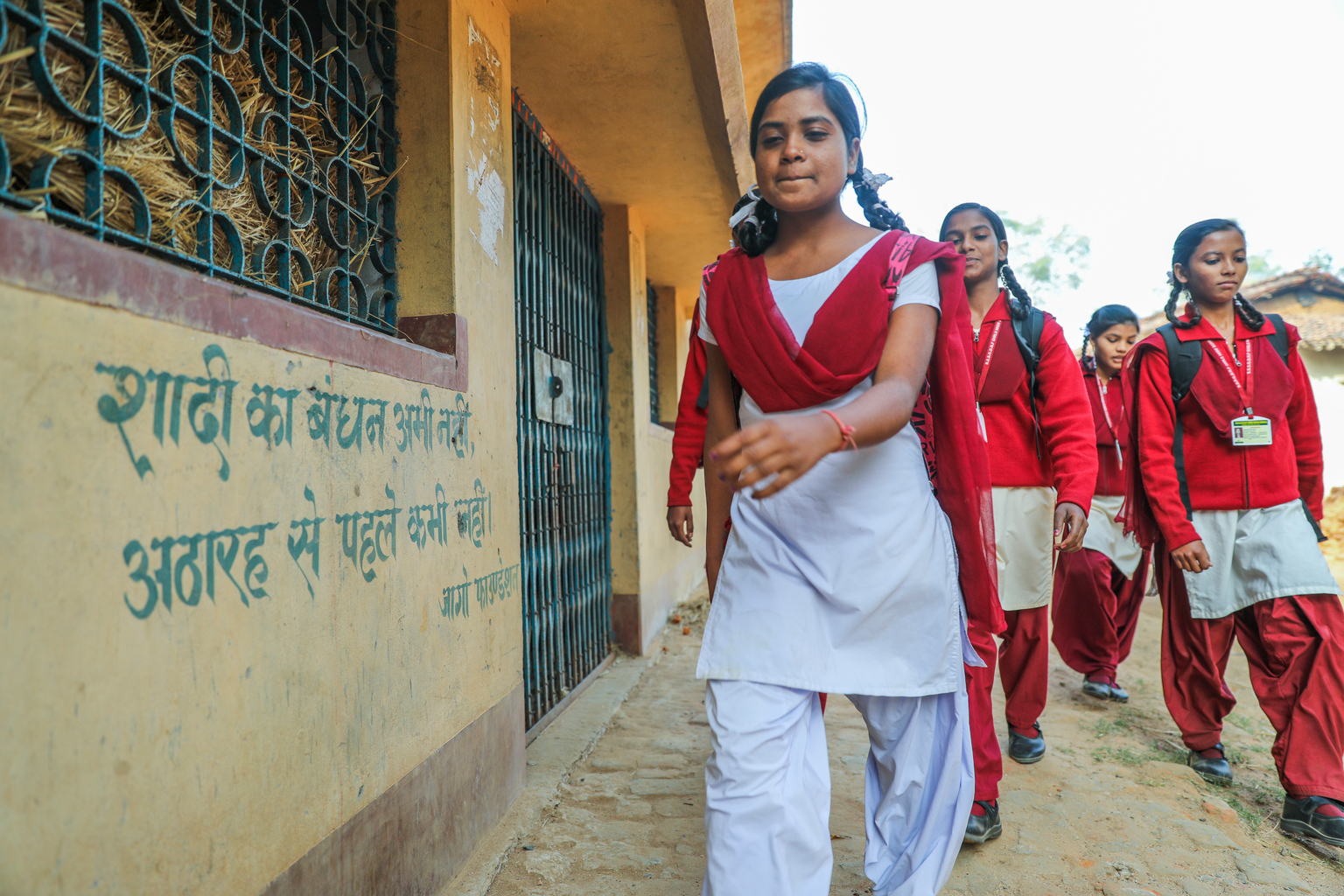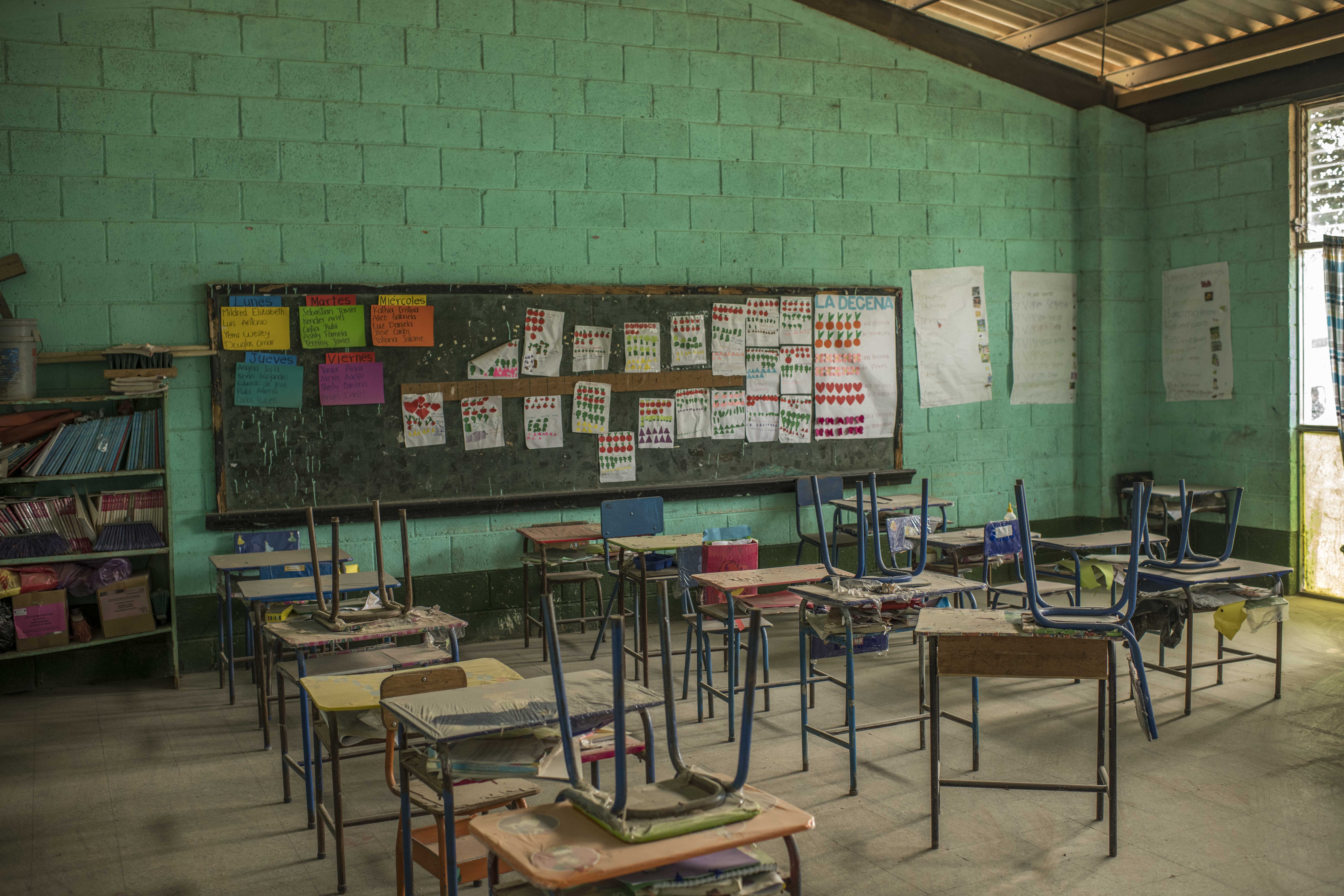Knowledge Hub
Learning and resources on gender in education
Welcome to the UNGEI Knowledge Hub
The first ever digital library featuring all types of learning content relating to gender in education, our Knowledge Hub is dedicated to organizations and individuals working to advance gender equality in and through education. Explore our resource centres, feature collections and more to build your knowledge across the field. Help expand the platform by sharing your resources below.
Search the entire Knowledge Hub
-
Select by sub-theme
- Costing & financing
- Data
-
Select by sub-theme
- Education outcomes
- Extra curricular activities
- Literacy
- Numeracy
- STEM
-
Select by sub-theme
- Comprehensive sexuality education (CSE)
- Sexual and Reproductive Health Rights (SRHR)
-
Select by sub-theme
- Digital learning
- Entrepreneurship training
- Financial literacy
- Life skills
- Peer learning
- TVET
-
Select by sub-theme
- Community mobilization
- Gender transformative education
- Menstrual hygiene management
-
Select by sub-theme
- Climate action
- Gender equality
- Health
- Peace
-
Select by sub-theme
- Curriculum
- Leadership
- Pedagogy
- School leadership & management
- Training
- #ENDviolence
- #EndSRGBV
- #InSolidarityWithGirls
- #TransformEducation
- #YouthLeads
- Access
- Accountability
- Activism
- Adolescence
- Adolescent girls
- Advocacy
- Attacks on education
- Beijing +25
- Boys and young men
- Bullying
- COVID-19
- Child marriage
- Child protection
- Child rights
- Climate action
- Community
- Community engagement
- Comprehensive sexuality education (CSE)
- Conflict
- Conflict and crisis
- Coordination
- Costing & financing
- Creative arts
- Curriculum
- Data
- Data and evidence
- Digital divide
- Digital learning
- Disability
- Discrimination (gender-based)
- Early childhood development
- Early childhood education
- Early pregnancy
- Economic empowerment
- Economic growth
- Education & disability
- Education crisis
- Education in emergencies
- Education outcomes
- Education policy
- Education systems
- Education unions
- Emergencies
- Empowerment
- Entrepreneurship
- Female genital mutilation (FGM)
- Feminism
- Financial literacy
- G7
- Gender
- Gender COVID effect
- Gender analysis
- Gender and disability
- Gender at the Centre
- Gender disaggregated data
- Gender equality
- Gender equality in education
- Gender norms
- Gender stereotypes
- Gender-based violence
- Gender-responsive education
- Gender-responsive education sector planning (GRESP)
- Gender-responsive pedagogy
- Gender-responsive strategies
- Gender-transformative education
- Girls with disabilities
- Girls' Education Challenge
- Girls' and women's rights
- Girls' clubs
- Girls' education
- HIV/AIDS
- Health & hygiene
- Homophobia, biphobia and transphobia (HBT)
- Humanitarian action
- Implementation
- Inclusion
- Inclusive education
- Journeys (to school)
- LGBTIQ+
- Labour conditions
- Leadership
- Learning
- Learning crisis
- Learning environments
- Learning outcomes
- Life skills
- Male engagement
- Marginalization
- Masculinities
- Menstrual Hygiene Management (MHM)
- Menstrual education
- Menstruation
- Mental health
- Mentorship
- Migration
- Monitoring & Evaluation (M&E)
- Non-formal learning
- Nutrition
- Peacebuilding
- Pedagogy
- Period poverty
- Planning
- Policy
- Post-conflict
- Poverty
- Preparedness
- Prevention
- Primary education
- Programme cycle
- Programming
- Psychosocial support
- Quality education
- Refugees
- Relationships
- Reporting
- STEM
- Safe schools
- Safe spaces
- School closures
- School dropout
- School to work transition
- School violence
- School-related gender-based violence (SRGBV)
- Secondary education
- Sexual Orientation, Gender Identity and Expression, and Sex Characteristics (SOGIESC)
- Sexual and Reproductive Health and Rights (SRHR)
- Sexual violence
- Skills
- Social norms
- Sustainable Development Goal 4 (SDG4)
- Sustainable Development Goals (SDGs)
- TVET
- Teacher training
- Teachers
- Teachers & teaching
- Technology
- Training
- Transitions
- Violence against children
- Water, sanitation and hygiene (WASH)
- Wellbeing
- Whole School Approach
- Youth
- Youth activism
- Youth engagement
- Youth voices
- Afghanistan
- Bangladesh
- Burkina Faso
- Cambodia
- Cameroon
- Central African Republic
- Chad
- China
- Colombia
- Côte D'Ivoire
- Democratic Republic of the Congo
- Ecuador
- Egypt
- Eswatini/Swaziland
- Ethiopia
- Ghana
- Guatemala
- Guinea
- Honduras
- India
- Indonesia
- Iraq
- Jamaica
- Kenya
- Lebanon
- Libya
- Malawi
- Mali
- Mauritania
- Mozambique
- Myanmar
- Nepal
- Niger
- Nigeria
- Pakistan
- Peru
- Philippines
- Rwanda
- Sierra Leone
- Somalia
- Somaliland
- South Africa
- South Sudan
- Sri Lanka
- Syria
- Tanzania
- Thailand
- Timor-Leste
- Uganda
- United Kingdom
- Venezuela
- Viet Nam
- Yemen
- Zambia
- Zimbabwe
- Assessments & evaluations
- Case study
- Comic
- Declarations & resolutions
- Factsheets & briefing notes
- Guidance, manuals & handbooks
- Infographic
- Leaflets & brochures
- Learning materials
- Plans & strategies
- Policies & standards
- Policy & advocacy briefs
- Position paper
- Presentation
- Recommendations
- Reports & summaries
- Research studies & reviews
- Teaching materials
- Technical notes & briefs
- Tools & toolkits
- Zine
FemNet4GTE Resource Hub
Feminist Mentoring For Feminist Futures – Part 1 - CREA
By Tejinder Singh Bhogal and Srilatha Batliwala Feminist leadership is essential for transformation at the individual level, as well as organizations and moveme
Boys’ disengagement from education | UNESCO
Background session on masculinities in GTE
Disability-inclusive Comprehensive Sexuality Education in Asia and the Pacific: An Assessment of Teacher Needs | Multisectoral Regional Office in Bangkok
People with disabilities deserve equal ac
International Technical and Programmatic Guidance on Out-of-School Comprehensive Sexuality Education (CSE)
International Technical and Programmatic Guidance on Out-of-School Comprehensive Sexuality Education (CSE)
